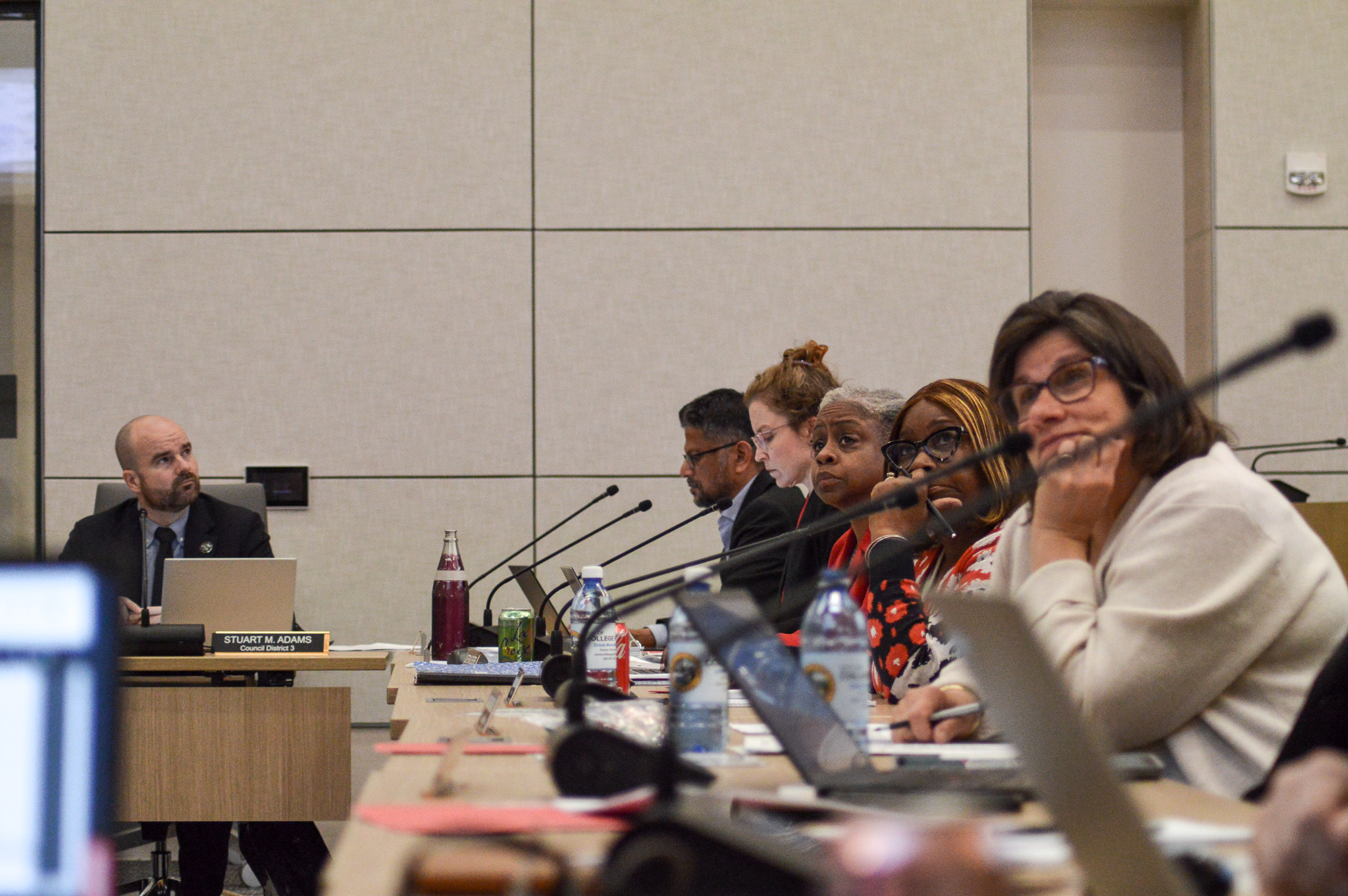Para leer este artículo en español, haga clic aquí.
The College Park City Council discussed raising taxes for vacant or blighted properties during a Tuesday council meeting.
Properties such as under-leased commercial properties, vacant housing, abandoned buildings and unused lots would be included in the tax increase.
The tax could be used to improve occupancy rates and property upkeep. It would not be used to generate city revenue, but instead aim to encourage good resident behavior, according to city finance director Gary Fields.
There are more vacant homes than homes for sale in the city, District 3 council member Stuart Adams said. The tax could prevent commercial spaces from using vacant areas as tax write offs, he said.
“We’re not that large of a city, but we have incredible demand for people to live here,” Adams said.
[College Park City Council aims to increase student engagement in city affairs]
Vacant properties — even when they are kept in good condition — contribute to an artificial housing shortage in the city, College Park resident Aubrey Batten said during public comment.
Mayoral candidate and small business owner Bryan Haddad spoke at the meeting in support of the vacancy tax. The tax must be large enough to influence larger entities and should exceed the incentive to engage in unethical business practices, he said.
“Large entities have an obligation to give back and landowners have an obligation to utilize space that is in demand,” Haddad said.
Haddad also suggested the tax should increase over time as property sits vacant or blighted.
The council has not defined exact definitions for vacant and blighted buildings and how these properties would be identified.
Self-reporting might not yield the best results for large apartment complexes because apartment managers have incentives to have high rent rates and not rent out all their rooms, city manager Kenneth Young said.
[Affordable housing, noise pollution take center stage at College Park mayoral debate]
Council members, including District 3 council member John Rigg, encouraged the city to exercise caution and avoid unfairly punishing families for vacant properties after the property owner dies.
“I don’t want to be punitive towards families [who are trying] to deal with property that oftentimes has real deep psychological value,” Rigg said.
The city should have an appeals board for properties identified as vacant or blighted that should consider special cases like a death in the family, Adams added.
The council asked for more direction from city staff and will revisit the discussion at a later meeting.



